November 28, 2024 | 20:51 GMT +7
November 28, 2024 | 20:51 GMT +7
Hotline: 0913.378.918
November 28, 2024 | 20:51 GMT +7
Hotline: 0913.378.918
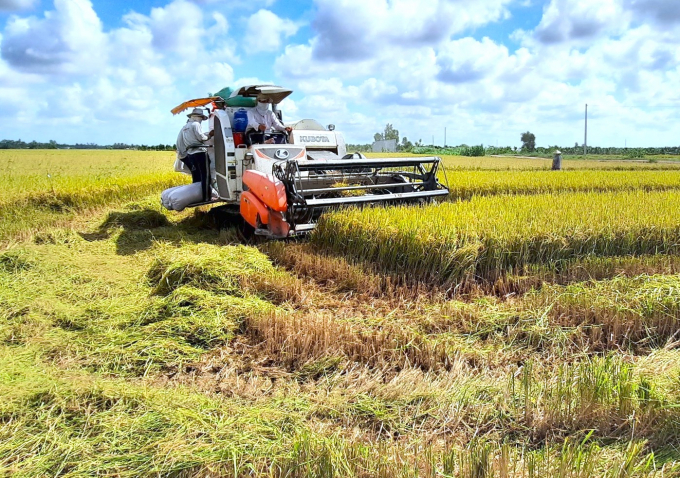
Farmers harvest winter-spring rice at My Thanh Nam Cooperative, Cai Lay district, Tien Giang province. Photo: Minh Dam.
In the last days of March, rice farmers in the Mekong Delta have harvested more than half of their winter-spring crop 2021-2022. This year, the average yield is higher than in previous seasons. However, farmers are not happy because of increasing production costs, decreased selling prices that make their profit much lower compared to the previous crop.
However, in the VnSAT project areas, thanks to production linkages, rice farmers’ profits are about 30 per cent higher than other farmers.
Enterprises buy all rice grown in the project’s rice cultivation area. In the summer-autumn rice crop 2021, enterprises signed contracts to buy a total of 61,372 ha of rice.
In My Thanh Nam Agricultural Service Cooperative (in My Thanh Nam commune, Cai Lay district, Tien Giang province), for more than ten years, farmers have found a solution to sustainable rice production. This is also a cooperative supported by the VnSAT project. The co-operative received training on rice production techniques such as "3 decrease, 3 increase", "1 must 5 decrease" as well as favourable conditions for sustainable production linkages. My Thanh Nam Agricultural Service Cooperative now has a rice production area of 100ha with 54 members.
Le Van Hung, Director of the cooperative said that before participating in the VnSAT project, farmers also knew the technique of "3 decreases, 3 increase". Accessing the project, they learned more about "1 must 5 reduce" technology which has more advantages, especially in the economic use of water. After training courses, farmers have much better access to science than before, especially the practice of fertilisering.
“In the past, we sprayed fertilisers without caring about crop diseases. We prayed 7-8 times each season but now, we reduce it to 3-4 times. In the past, each farmer used to sow 20 kg of seed. After learning IPM, it was reduced to 15kg. Now, after being trained by the VnSAT Project, we boldly reduced the amount of seeds to 10 kg. Fertilizer is also reduced much as in winter-spring crop farmers apply from 30-35 kg/công [ 1 công = 0.1 ha], summer-autumn and autumn-winter increase more but not more than 40kg/công. Compared to before, the amount of fertiliser reduces 10-15kg per công", Hung asserted.
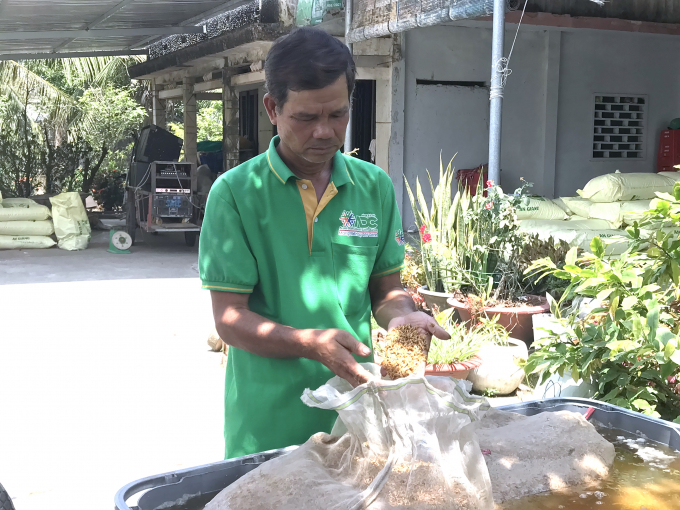
Le Van Hung soaked the seeds to prepare for sowing the summer-autumn crop. Photo: Minh Dam.
He also said that, since 2009, the cooperative has applied GlobalGAP standards. After that, the cooperative cooperated with ADC Company to grow rice. The enterprise provided certified seeds, agricultural materials, and appointed staff to support intensive farming.
At the end of the harvest season, the enterprise offered to buy rice at VND200-300 per kg, so farmers got quite a high profit. Each year, the cooperative grows three rice seasons and the ADC Company offered suitable high-quality rice varieties - OM 4900, OM 5451, Jasmine 85, Dai Thom 8.
In addition, farmers have production costs reduced, particularly the cost of fertilisers and pesticides. Hung said that this winter-spring crop, the cooperative fertilises with the formula of 15 kg of chemical fertiliser and 20 kg of organic fertiliser named "Dairy cow".
Fund for fertiliser is about VND500,000 per công, which is only half of that of other farmers. Specifically, co-operative members see the average yield of about 7 tons/ha, getting a profit of VND28 million per ha, higher than the provincial average of VND3 million per ha.
Recently, implementing the commitment with the Plant Protection Department, ADC Company has implemented a rice production model according to biological processes at My Thanh Nam Cooperative.
Notably, recently, this cooperative has 50ha of rice certified to meet SRP standards, which makes it eligible to export rice in the European market.
Le Van Hung, Director of the cooperative said excitedly that previously, following GlobalGAP standards, they used chemical fertilisers and monitored the isolation time so that there were no residues left.
Now, they use biological products completely, and rice still grows well. The enterprise offers to buy the rice at a price that is 15 per cent higher than the market price.
“Cooperative members are very excited and look forward to expanding the area shortly.”
The model was highly appreciated by the delegation of the Plant Protection Department during a recent business trip to Tien Giang province, especially for environmental protection, safety for farmers. Once collecting packages and bottles, farmers kept them tidy and in the right places.
"The Plant Protection Department evaluates this model as the best one in the country," said Hung.
SRP is the world's first set of standards for sustainable rice production with 46 criteria and 8 issues, aiming for modern and sustainable rice production including Good field management, rational use of water resources, pest and disease management, nutrient management, post-harvest loss reduction, ensuring socio-economic and environmental factors with a sustainable vision. SRP also pays attention to food safety, safety for farmers, and high-quality rice for consumers.
Translated by Hien Anh
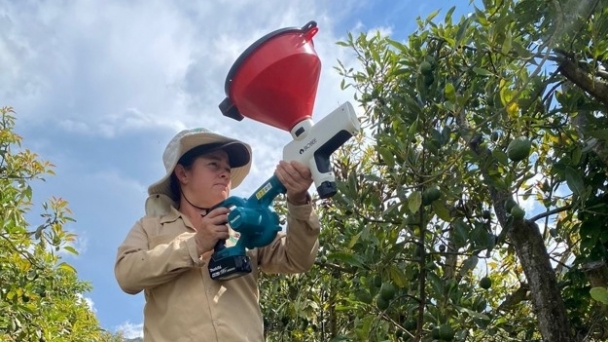
(VAN) BugFlow's design is practical and tailored to the needs of growers. Skirma recounts how feedback from users led to significant improvements in the device.
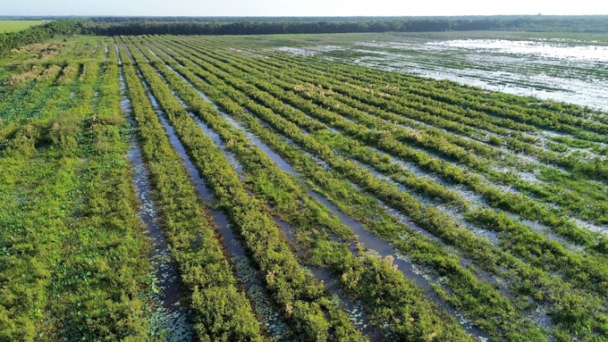
(VAN) The project "Planting and restoring 17 hectares of special-use melaleuca forest with 340.000 melaleuca trees" in Tan Hung District, Long An has been handed over by C.P. Vietnam after restoration.
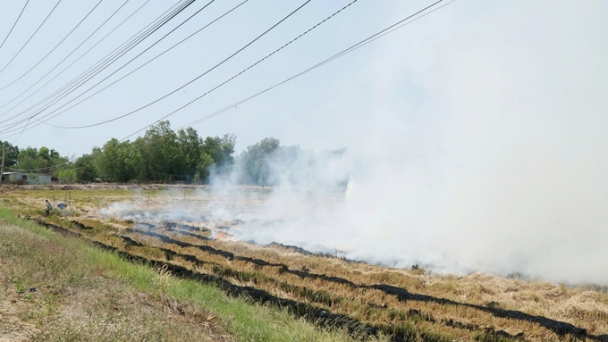
(VAN) Several rice farmers have eliminated field burning after being instructed in straw handling, which improves economic efficiency and health.
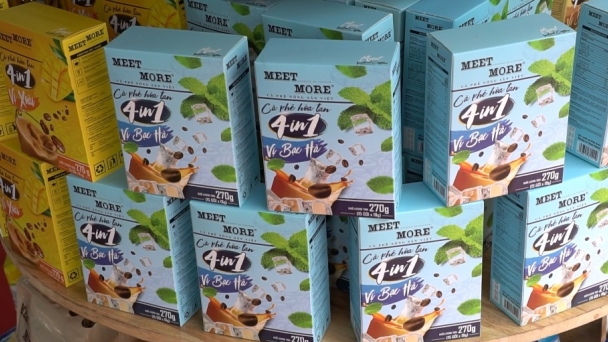
(VAN) Meet More Coffee aims at the community of Vietnamese expatriates in the world. Because they themselves are messengers to help Vietnamese products spread more widely in the world market.
/2024/11/25/1313-2-204818_157-204818.jpg)
(VAN) OCOP certification is a plus point when offering products to supermarket systems. From there, OCOP products can penetrate the market better and are more easily accessible to domestic and foreign customers.
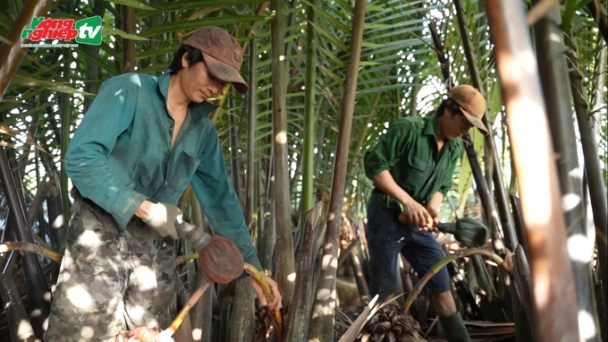
(VAN) Ho Chi Minh City's OCOP products demonstrate uniqueness and creativity in ideas or have unique ways of doing that contribute to raising the value of Vietnamese agricultural products.
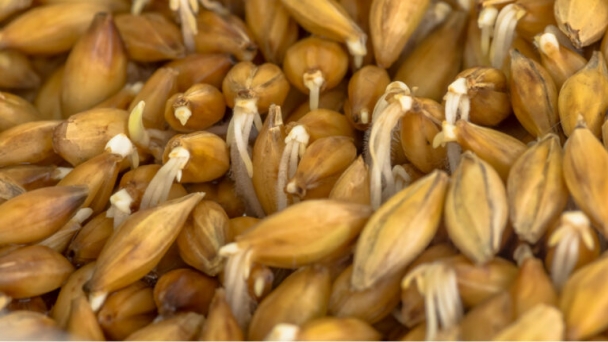
(VAN) Researchers also noted that the more sprouted barley the hens ate, the less feed they required, particularly in the latter half of the study.